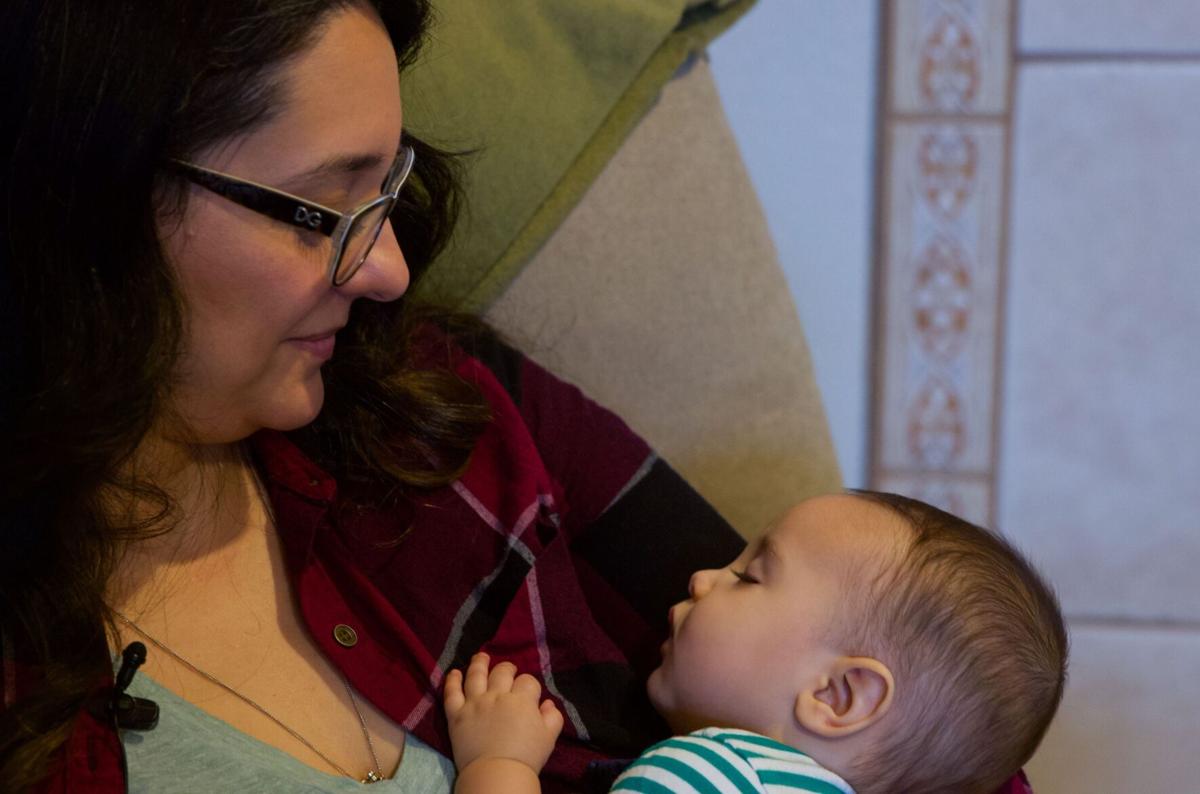PHOENIX т Vaccines for COVID-19 had just started rolling out when Mayra Jeffery learned she was pregnant with her second child. Because misinformation about the safety of the shots was rampant, Jeffery waited.
After her 20-week scan, when her baby was screened for abnormalities and she learned he was just fine, Jeffery decided the time was right.
тI was really more focused on protecting him,т said Jeffery, 34, a program manager with the Pima County Health Department. тI felt personally that there was much more knowledge around a vaccine that many scientists have studied and researched, and thereтs a lot of evidence on its efficacy.
тI felt really reassured and тІ the hopefulness of him receiving that protection as well.т
That was last spring. Now, a year later, more studies are revealing the dangers pregnant people can face if they contract COVID-19 т as well as the protection that vaccines offer them and their infants.
People are also reading…
тThere are a lot of complications that can arise if they were to get COVID,т Dr. Gayle Dean, an OB-GYN at УлшжжБВЅ Medical Center, told Cronkite УлшжжБВЅ. Earlier this year, she joined other experts and Jeffery in a virtual town hall to encourage those who are pregnant to get vaccinated.
тWe always want to try to practice preventative medicine and try to be protective for the patient,т Dean said.
For months now, experts with the Centers for Disease Control and Prevention and elsewhere have issued urgent calls for pregnant people to get vaccinated against COVID-19, citing low vaccination rates and concerns about the potential for severe illness and even death.
In late September, the CDC circulated a noting just 31% of pregnant people had been vaccinated against COVID-19, with rates even lower among Hispanic and Black individuals.
тI strongly encourage those who are pregnant or considering pregnancy to talk with their health care provider about the protective benefits of the COVID-19 vaccine to keep their babies and themselves safe,т Dr. Rochelle Walensky, director of the CDC, said at the time.
Now, statistics appear to show that vaccination rates have risen significantly among this vulnerable group.
Government data for the week ending April 2, collected from nine health care organizations in seven states, showed that 70% of about 72,000 pregnant women were fully vaccinated against COVID-19. Rates were lowest т at 56% т among Black women.
Those numbers compare with an of the overall population fully vaccinated for COVID-19, according to the CDC.
In explaining the rise in vaccination rates among pregnant people, CDC spokeswoman Kate Grusich said the methodology for tracking these statistics had changed. Earlier data showed cumulative vaccination numbers for pregnant people dating back to December 2020, before vaccinations were widely available to the general population. The new dataset reflects vaccination rates among those currently pregnant in a given week.
Pregnant people are at much higher risk for more serious complications if they get COVID-19. include the use of a ventilator, preterm birth, preeclampsia, stillbirth and death of the mother.
тPregnant women have an immunocompromised status,т Dean said. тThat means that there is an increased risk of getting a severe disease.т
With more severe cases, Dean stressed that hospitalization may be necessary.
COVID-19 cases in pregnant people peaked the week of Dec. 25, 2021, when the highly transmissible omicron variant was circulating. Through April 4, , 196,638 pregnant people have contracted COVID-19, more than 31,000 have been hospitalized and 282 have died.
Several studies show both mothers and their infants can benefit from the vaccines.
A about pregnant individuals found no increased risk of miscarriage for those vaccinated in the first trimester, perhaps before they knew they were pregnant; no safety concerns for those vaccinated later in pregnancy; and no link between the vaccines and preterm birth.
One recent study by researchers found that mothers who were vaccinated during pregnancy gave birth to children who had high levels of COVID-19 antibodies.
тThe durability of the antibody response here shows vaccination not only provides lasting protection for mothers but also antibodies that persist in a majority of infants to at least 6 months of age,т said Andrea Edlow, an author of the study and a maternal-fetal medicine specialist at Massachusetts General Hospital.
Research is ongoing, and the CDC created a to collect health information from people vaccinated just before conception or during pregnancy.
Experts also continue to urge those who want to become pregnant or who are pregnant to get vaccinated and boosted, especially with a new omicron subvariant, BA.2, beginning to circulate in the U.S.
Jeffery said that like so many others, she experienced a sore arm after getting vaccinated. But her pregnancy proceeded normally, and she gave birth to a healthy baby boy т Max т in August.
тThe vaccine is just one of the best things you can do to protect yourself,т she said, тso you can be present and available when that baby requires everything that they do from you.т









